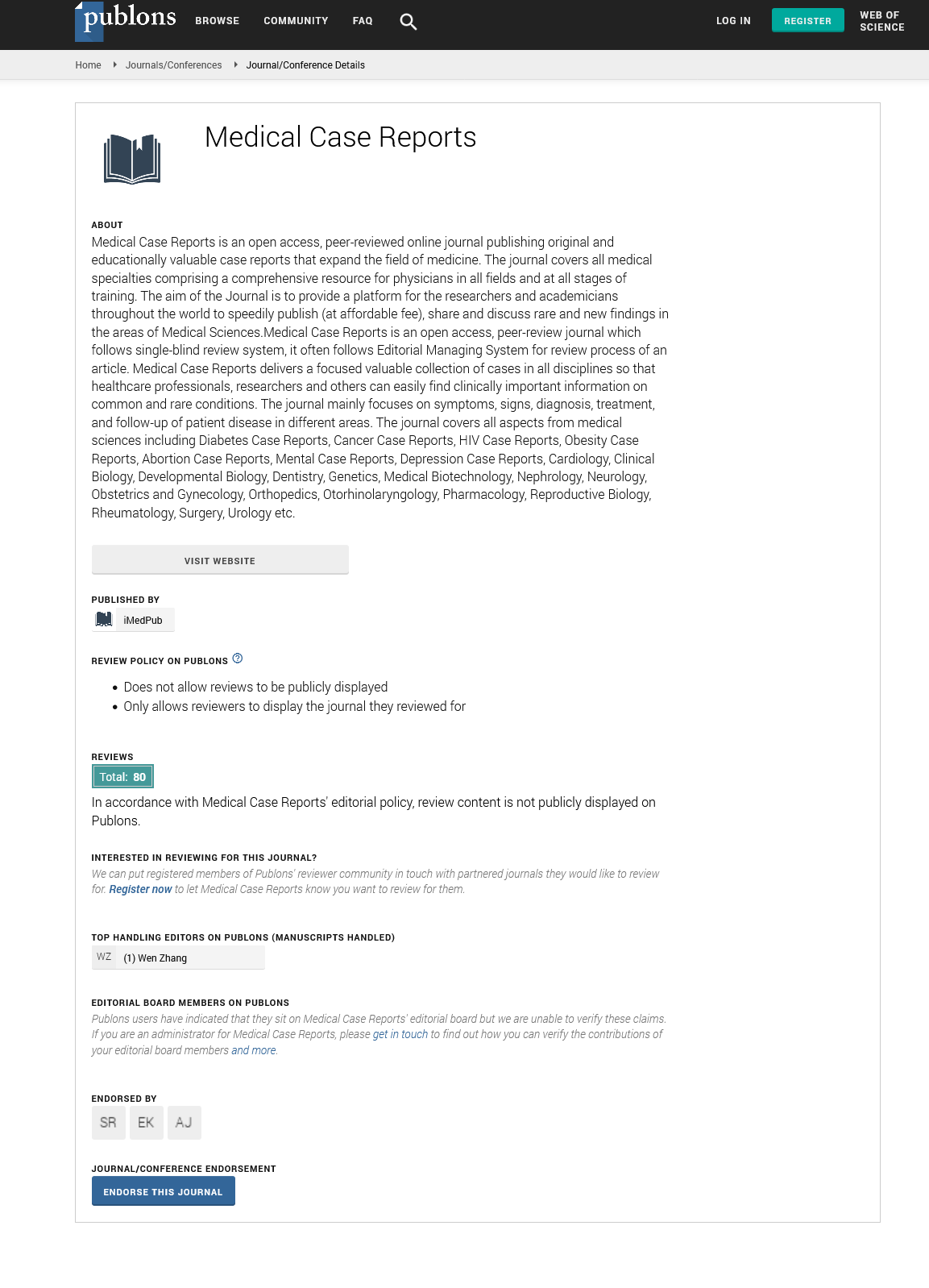ISSN : 2471-8041
Medical Case Reports
Double seronegative myasthenia gravis: a case report
8th Edition of International Conference on Clinical and Medical Case Reports
May 28-29, 2018 London, UK
Linda Carolina Jaramillo, Jenny Paola Garzon and Gustavo Pradilla
Industrial University of Santander, Colombia
ScientificTracks Abstracts: Med Case Rep
DOI: 10.21767/2471-8041-C1-002
Abstract
A 54-year-old man with chronic exposure to carbamates and organophosphates was referred from the otorhinolaryngology outpatient section in 2014, because of 3 years of dyspnea and dysphonia of spasmodic features, phonasthenia without respiratory distress or dysphagia; associated to progressive weakness in lower limbs. Brain magnetic resonance, angioresonance and chest x-ray had no alterations; laryngeal electromyography revealed a bilateral neuropathic pattern without denervatory activity, with some signs of reinnervation and decreased recruitment. Lambert test displayed motor and sensory distal latencies of median nerves prolonged. Repetitive stimulation test evidenced a decrease greater than 10% in the trapezium, concluding an abnormal repetitive stimulation test, concluding a conduction disorder in the neuromuscular junction. With a diagnostic impression of myasthenia gravis, the patient started a therapeutic test with pyridostigmine worsening the symptoms, so he was switched to azathioprine and corticosteroids. His anti-MuSK antibodies <0.05 mmol/L and antibodies against acetylcholine receptors <15% were interpreted as negative. Due to worsening of the bulbar symptoms, plasmapheresis was performed; after the first session he showed improvement in lower limbs weakness, so five sessions were carried out with continuous improvement. Myasthenia gravis and its subcategories are major diseases that affect the neuromuscular junction. The diagnosis is confirmed by the combination of relevant symptoms and signs, neurophysiological studies and a positive test for specific autoantibodies. About 10% of patients with generalized myasthenia gravis do not have detectable antibodies to acetylcholine receptors or muscle specific kinase (MuSK) (double seronegative myasthenia), so neurophysiological tests and a positive response to therapy secure the diagnosis.
Biography
Gustavo Pradilla is a Colombian native who finished his medical training with honours in the first class of medicine at the Universidad Industrial de Santander (UIS) in Bucaramanga. He did his neurology residency at the Universidad Javeriana in Bogotá, later returned to his alma mater and was dean of the faculty of health. Currently he is a UIS medicine laureate professor and head of the neurology service at the Hospital Universitario de Santander
E-mail: carojararo@gmail.com
Google Scholar citation report
Citations : 241
Medical Case Reports received 241 citations as per Google Scholar report
Medical Case Reports peer review process verified at publons
Abstracted/Indexed in
- Google Scholar
- China National Knowledge Infrastructure (CNKI)
- Cosmos IF
- Directory of Research Journal Indexing (DRJI)
- WorldCat
- Publons
- Secret Search Engine Labs
- Euro Pub
Open Access Journals
- Aquaculture & Veterinary Science
- Chemistry & Chemical Sciences
- Clinical Sciences
- Engineering
- General Science
- Genetics & Molecular Biology
- Health Care & Nursing
- Immunology & Microbiology
- Materials Science
- Mathematics & Physics
- Medical Sciences
- Neurology & Psychiatry
- Oncology & Cancer Science
- Pharmaceutical Sciences
